A sea change in our outlook, and not a changing tide, will determine the future
World Oceans Day is an urgent reminder of the reckless exploitation of precious oceanic resources and the need to develop sustainable measures to protect them


Maritime boundary disputes have engaged certain nations more than the real problem they should be focusing on—pollution, destruction of aquatic habitats, overfishing, and acidification of our oceans. The importance of strong environmental policies to protect ocean health and conserve marine life which provides food for billions and job opportunities for millions worldwide is the need of the hour.
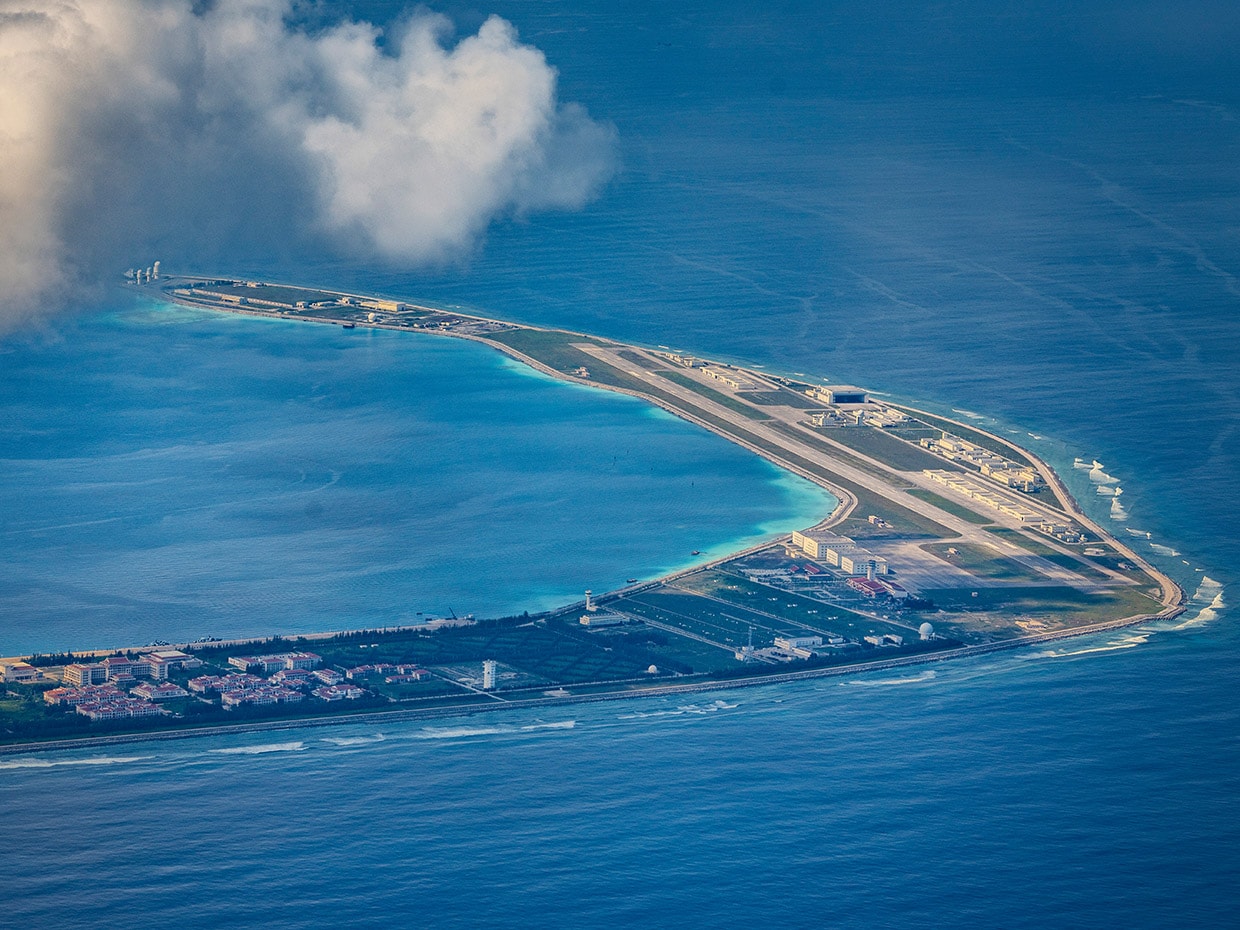 An airfield, buildings, and structures are seen on the artificial island built by China in Mischief Reef on October 25, 2022, in the Spratly Islands, South China Sea. China has progressively asserted its claim of ownership over disputed islands by artificially increasing the size of islands, creating new islands and building ports, military outposts and airstrips. Image: Ezra Acayan/Getty Images
An airfield, buildings, and structures are seen on the artificial island built by China in Mischief Reef on October 25, 2022, in the Spratly Islands, South China Sea. China has progressively asserted its claim of ownership over disputed islands by artificially increasing the size of islands, creating new islands and building ports, military outposts and airstrips. Image: Ezra Acayan/Getty Images
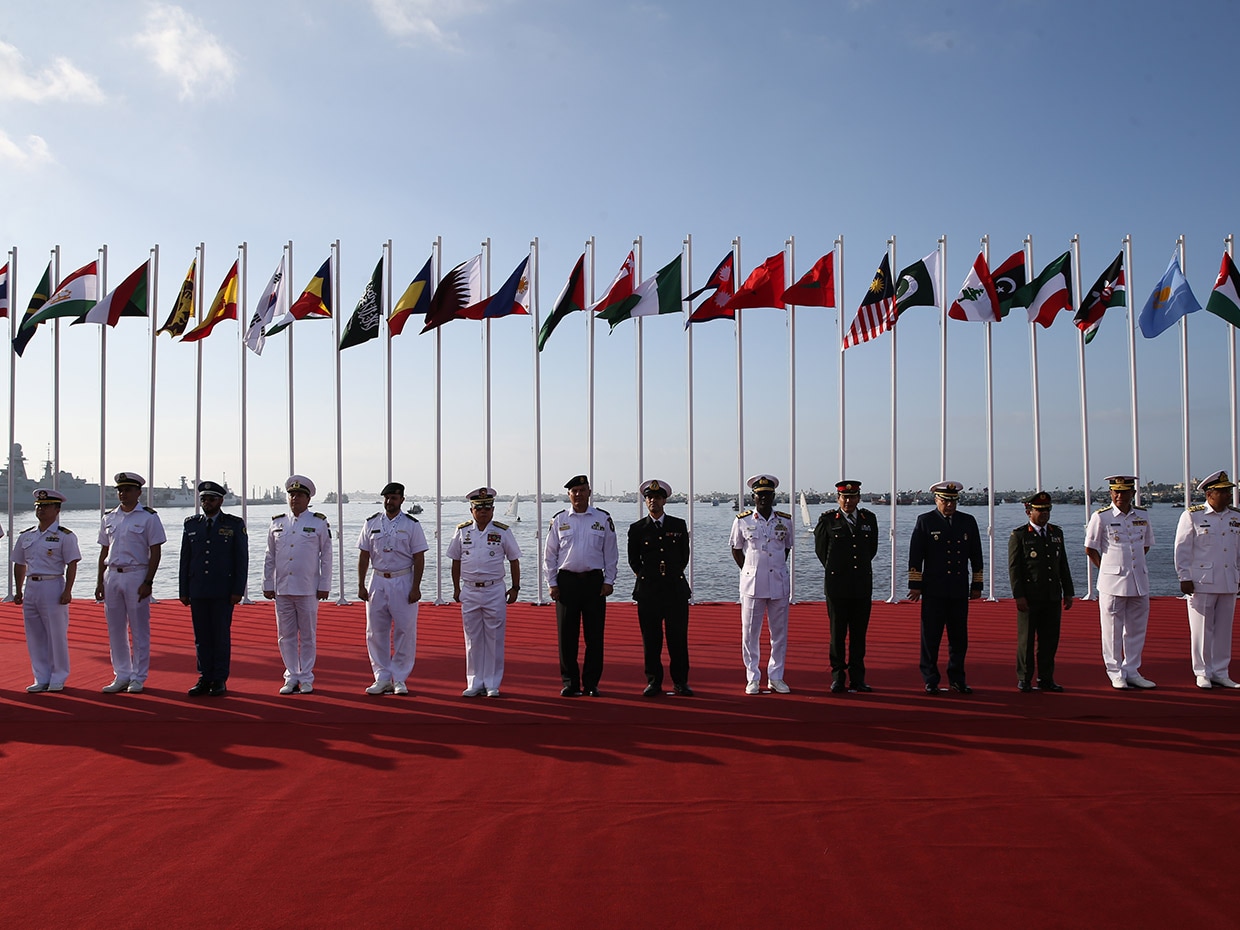
Led by Pakistan, a five-day multinational naval exercise involving 50 countries, including Turkiye, the US, and China, began in the Arabian Sea in Pakistan on February 10, 2023. Regional countries such as Saudi Arabia, Oman, Kuwait, Bangladesh, Sri Lanka, and Indonesia, as well as African Union countries, are taking part in the event with ships, aircraft, special operations forces, marine teams, and observers. Image: Muhammed Semih Ugurlu/Anadolu Agency via Getty Images
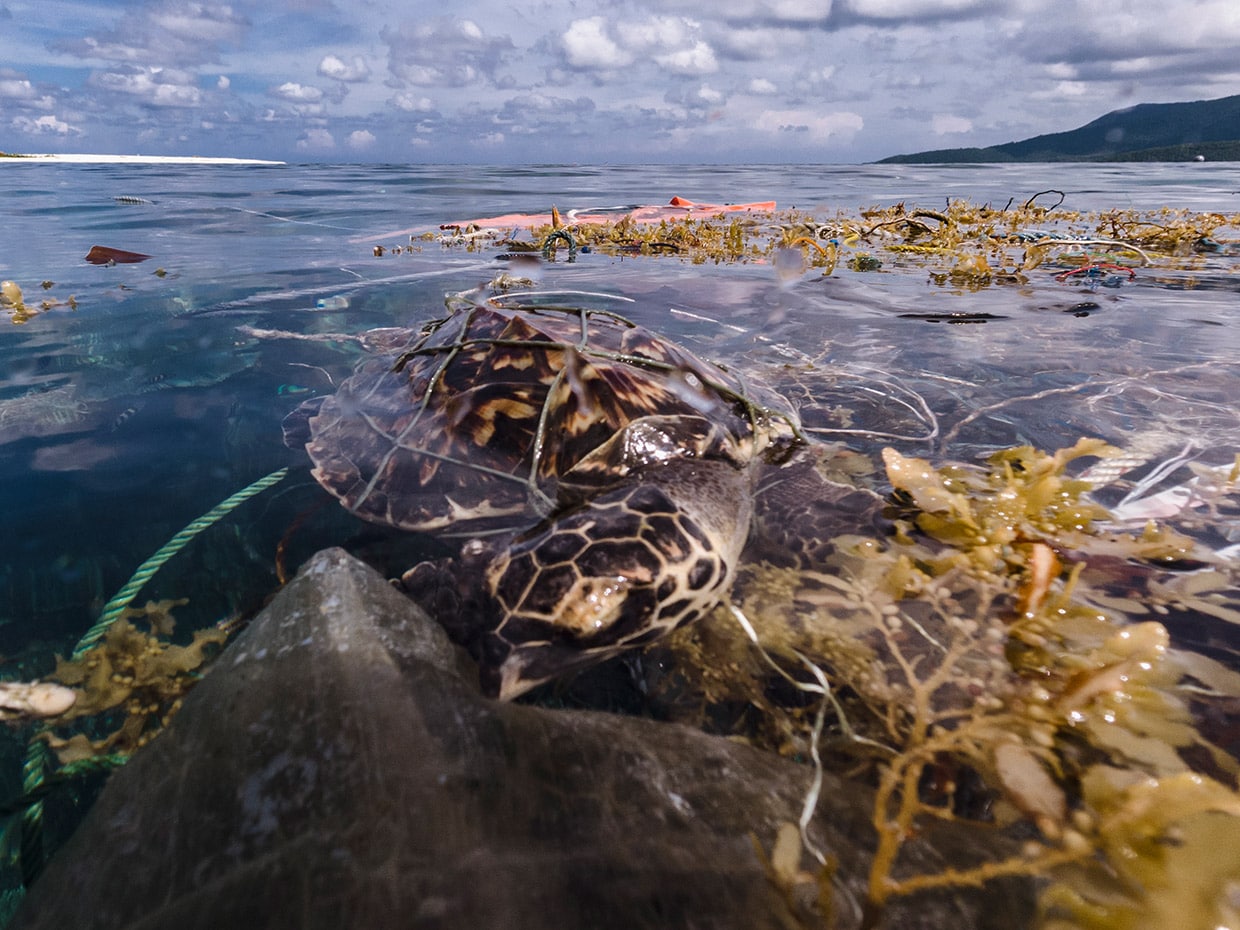
A hawksbill sea turtle is seen caught in an abandoned fishing net in Karimunjawa islands on June 12, 2022, in Central Java, Indonesia. These ‘ghost’ nets are one particularly egregious part of the global abandoned fishing gear problem, which poses a threat to marine life. Image: Ulet Ifansasti/Getty Images
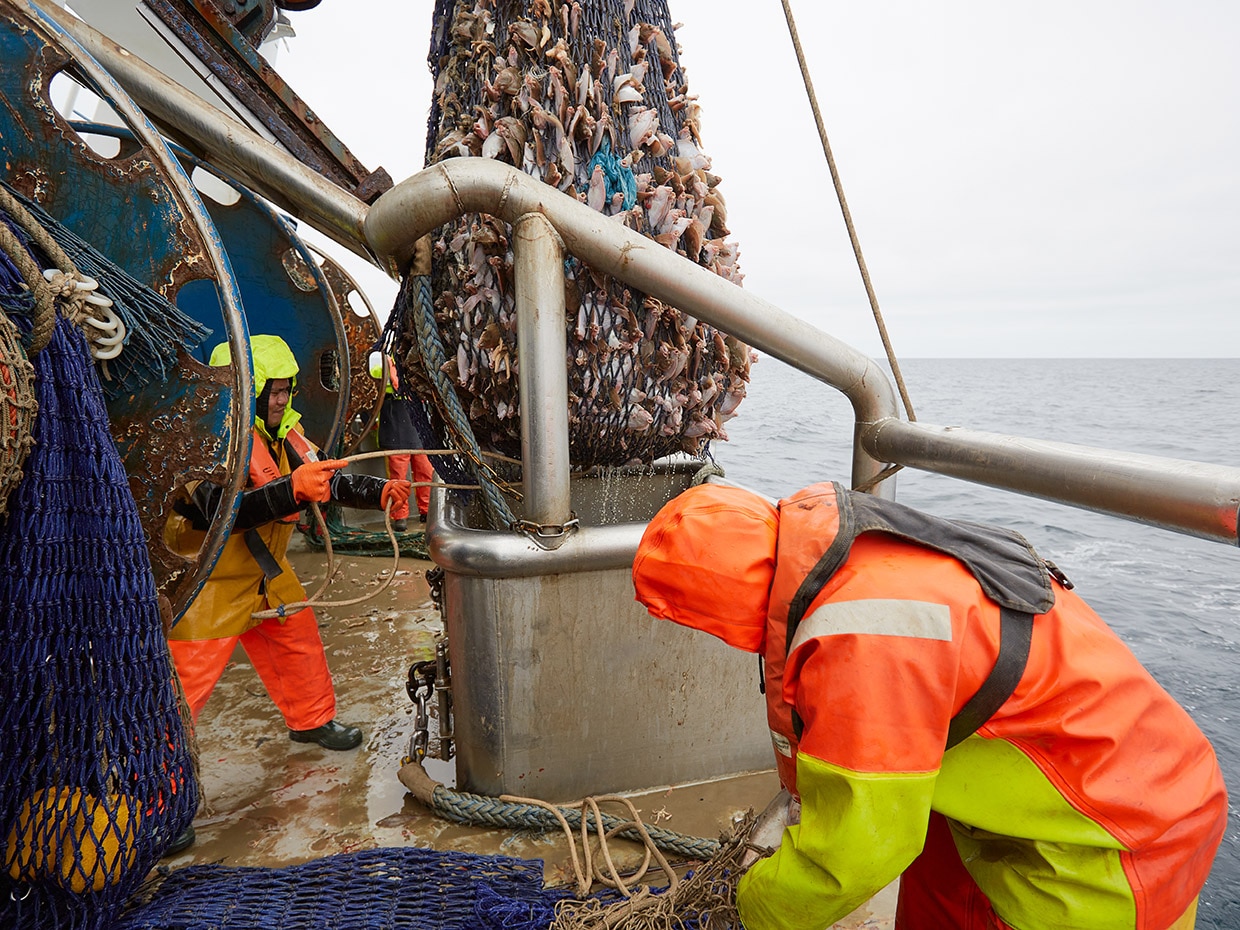
Fishermen hoist a catch on the fishing boat MDV-1 Immanuel in the North Sea, Netherlands on May 31, 2023. The North Sea is a major fishing area for the surrounding coastal states of Norway, the UK, Sweden, the Netherlands, France, Germany, Denmark and Belgium, with an average total harvest in recent years of about 1.8 million tonnes. The Brexit trade agreement of 2021 has gradually reduced EU fishing opportunities due to the limited number of fish stocks. Image: Pierre Crom/Getty Images
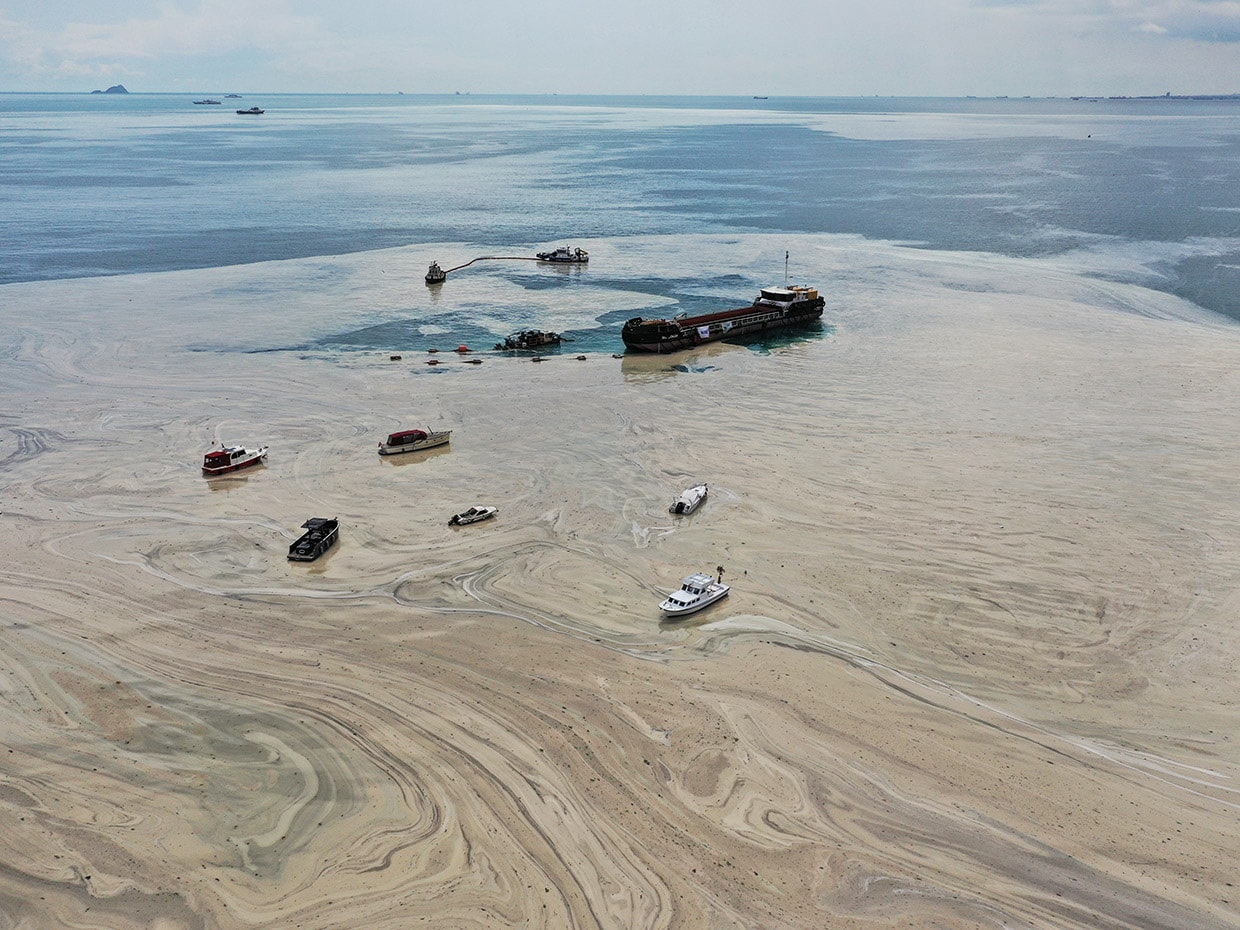
Sea-surface-cleaning vessels and barrier-laying boats of Istanbul Municipality clean up a thick slimy layer of organic matter also known as marine mucilage, spreading through the Sea of Marmara and posing a threat to marine life and the fishing industry, in Istanbul, Turkey June 15, 2021. Overheated acidified seas and distressed phytoplanktons are known triggers. Image: Umit Bektas / Reuters
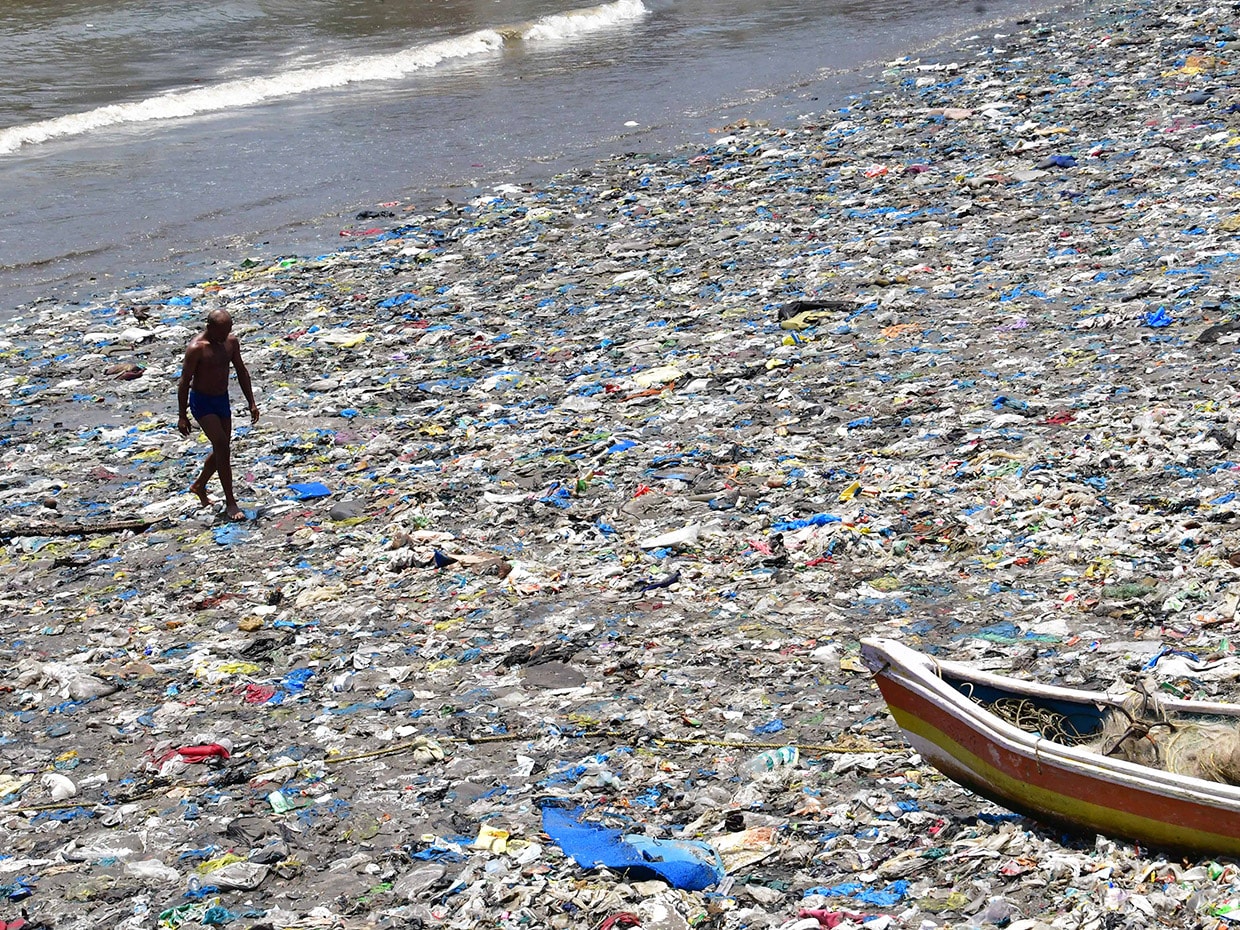
A man walks on the plastic waste thrown back ashore by the sea waves at Colaba, on May 31, 2023, in Mumbai, India. An estimated 8 million tonnes of plastic waste end up in the oceans. Image: Bhushan Koyande/HT/ Getty Images
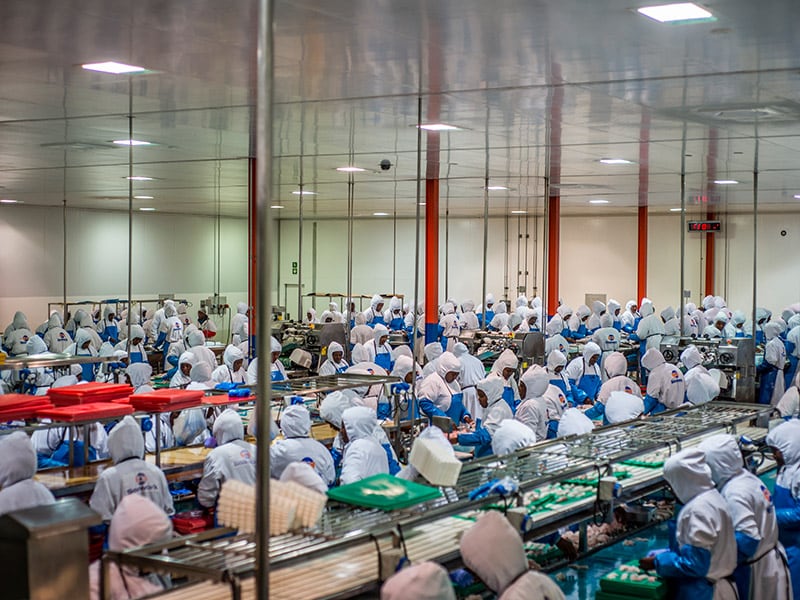
A file photo of workers of a fish processing factory making fillets from hake in Walvis Bay, Namibia. Producing almost 160,000 tons of final product annually, Namibia exports all of it to the EU, Australia and the US. Image: Oleksandr Rupeta/NurPhoto via Getty Images
First Published: Jun 08, 2023, 16:47
Subscribe Now